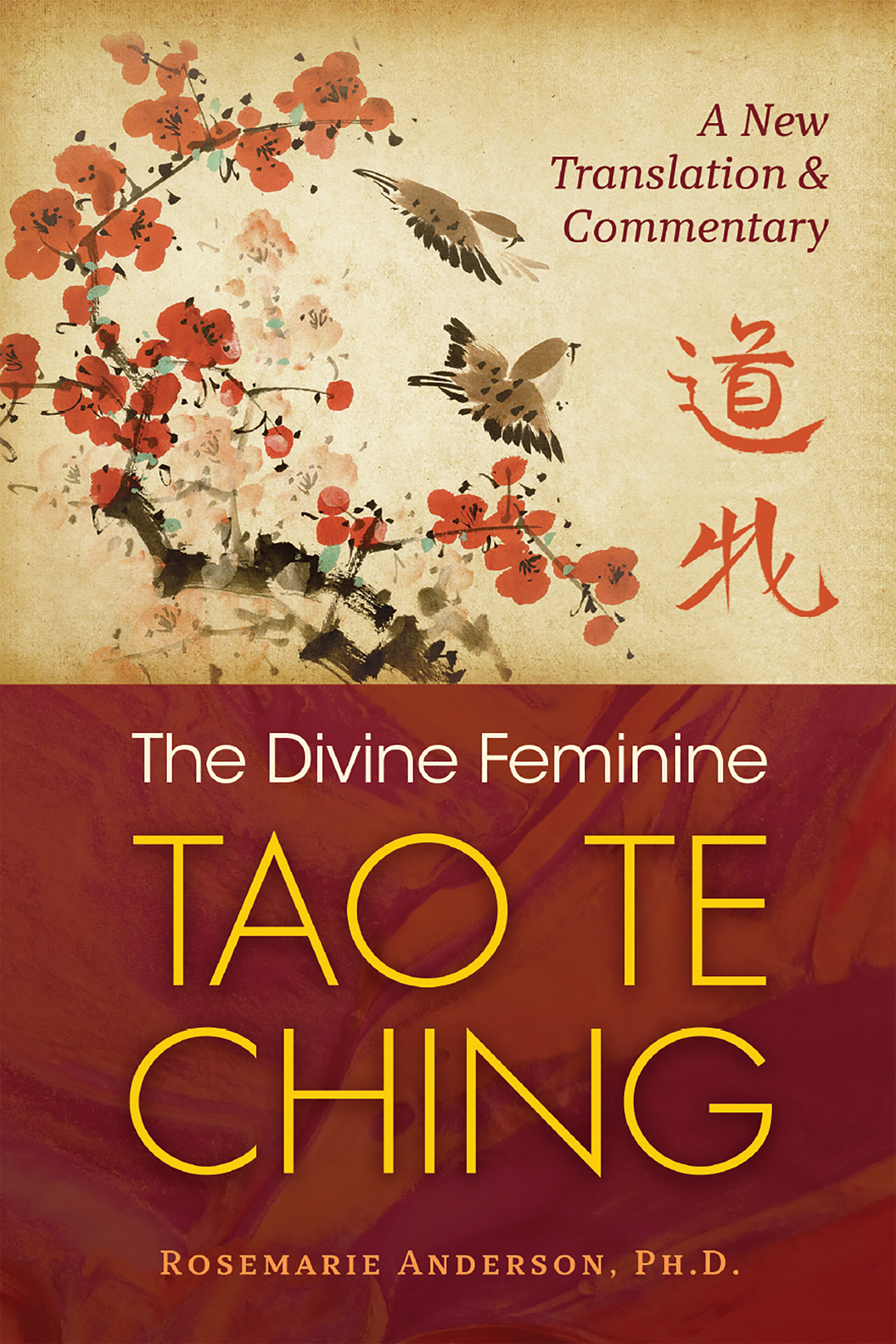
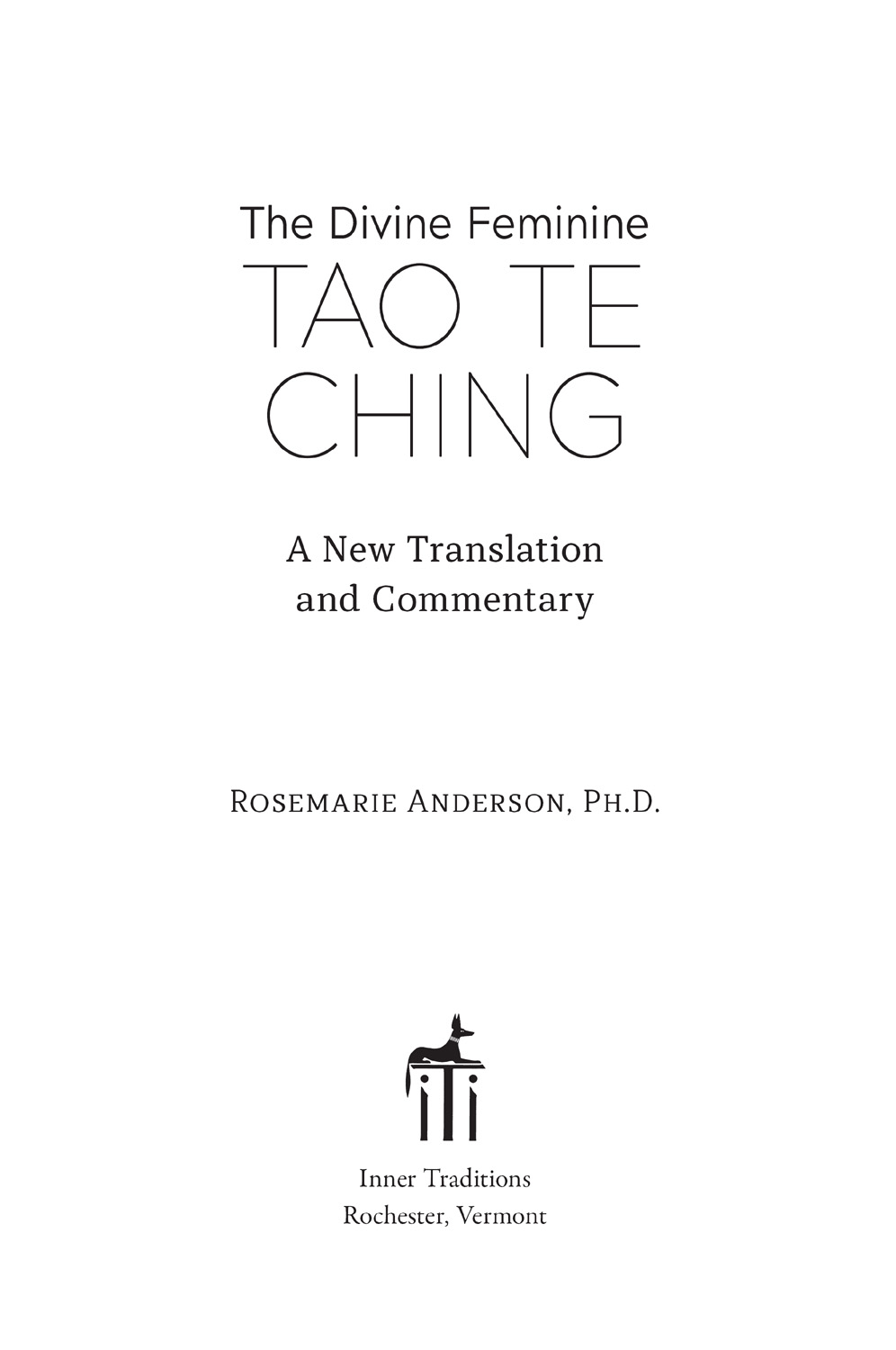 THE DIVINE FEMININE
THE DIVINE FEMININE
TAO TE CHING  Rosemarie Andersons translation of the Tao Te Ching is perhaps the truest reflection of this ancient text, which refers to the Tao not in an impersonal way but in a feminine way. Andersons contemplative approach also adds to technical accuracythe lyricism, beauty, and mysticism of the original way the verses were performed. Her stunning achievement revitalizes this venerable wisdom and powerfully evokes its deeper meanings. JENNY WADE, PH.D., AUTHOR OF CHANGES OF MIND ANDTRANSCENDENT SEX Centering on the Tao as womb of the universe and Te as both virtue and potentiality, Rosemarie Anderson gives us a delightful ease of engagement with the ancient Chinese wise sayings. Her embodied approach is heart-opening; the crisp, direct lines are invitational; and the artful spacing of the layout adds to the beauty. I feel at home in this translation.
Rosemarie Andersons translation of the Tao Te Ching is perhaps the truest reflection of this ancient text, which refers to the Tao not in an impersonal way but in a feminine way. Andersons contemplative approach also adds to technical accuracythe lyricism, beauty, and mysticism of the original way the verses were performed. Her stunning achievement revitalizes this venerable wisdom and powerfully evokes its deeper meanings. JENNY WADE, PH.D., AUTHOR OF CHANGES OF MIND ANDTRANSCENDENT SEX Centering on the Tao as womb of the universe and Te as both virtue and potentiality, Rosemarie Anderson gives us a delightful ease of engagement with the ancient Chinese wise sayings. Her embodied approach is heart-opening; the crisp, direct lines are invitational; and the artful spacing of the layout adds to the beauty. I feel at home in this translation.
And more to the point, its exactly what we need now that things are falling apart. Peaceful means could further our survival. JUDY GRAHN, PH.D., AUTHOR OF ERUPTIONS OF INANNA ANDANOTHER MOTHER TONGUE Rosemarie Andersons unique translation of the Tao Te Ching allows us, for the first time, to experience the mystical feminine essence of the Taoa combination of the power and tenderness, exhortation and patience of the Divine Motherand invites us to walk the path of transformation for ourselves. Rosemarie translates like a poetlingering, listening into the rhythm and texture of the words, allowing each phrase to speak its wisdom. And thats exactly how you should read this book. In doing so, your relationship with the Tao will be forever enriched.
LINDA SPARROWE, TEACHER, CONTENT CONSULTANT, AND AUTHOR OF YOGA AT HOME AND THE WOMANS BOOK OF YOGA AND HEALTH As a classic of world literature, the Tao Te Ching seems to unfurl its majestic layers of wisdom anew for each new generation. Professor Anderson has contributed incisively to its history by giving us a layer that speaks eloquently and urgently to our age: the feminine nature of the Tao. As if sitting in the depths of the poetry for centuries waiting to be awakened, the feminine can now speak of her paths and insights that radiate so finely through this new translation. It is rare indeed that a scholar excels in diverse fields; having blazed a creative and influential trail in transpersonal psychology over recent decades, Anderson has now aspired to the challenge of translation. All translation is also interpretation, and Andersons sensitive grasp of the wisdom in the Tao will benefit all who read this work. BRIAN L.
LANCASTER, PH.D., AUTHOR OF APPROACHES TO CONSCIOUSNESS AND THE ESSENCE OF KABBALAH While I have purchased a dozen or more translations of the Tao Te Ching over the years and have found its verses beautiful and practical, Rosemarie Andersons version deepened my appreciation for this classic book by drawing my attention to the lyrical, mystical, and feminine nature of the versesperspectives never before described with such depth and authority. Anderson makes a persuasive case that the Tao is female in nature, and this realization illumines portions of the work that would otherwise be ignored. She also reminds us that the verses were often sung by ancient bards, a provocative practice that her readers can attempt themselves. When I am asked which translation I would recommend to novices, I will not hesitate to choose this one. STANLEY KRIPPNER, PH.D., ASSOCIATED DISTINGUISHED PROFESSOR AT THE CALIFORNIA INSTITUTE OF INTEGRAL STUDIES AND COAUTHOR OFPERSONAL MYTHOLOGY Rosemarie Anderson eloquently gives voice to the feminine soul of the Tao Te Ching. With a profound and in-depth understanding, she reveals the graceful connotations and helps us to experience the beauty and wisdom in the verses.
Her commentaries bring new insight to an ancient text full of esoteric knowledge pertinent to the challenges of our modern world. LEE L. JAMPOLSKY, PH.D., AUTHOR OF HEALING THE ADDICTIVE PERSONALITY Acknowledgments T ranslating the Tao Te Ching has been a work of love. Friends and colleagues have helped me along the way. Among them is Paul Goodberg, my spiritual teacher for some twenty years. His companionship and spiritual training in esoteric traditions from central Europe and Latin America was invaluable to me because he would ask questions I would never have thought to ask, which inevitably invited me to deepen my understanding of the Chinese text.
Paul also introduced me to my editor, Linda Sparrowe, who helped me revise the introductory chapters and book proposal and introduced me to my publisher. Paul and Lindas enthusiasm for my translations of the poems never wavered. On the everyday side, neighbor, friend, author, and poet Patricia Florin was a constant support. I am grateful for her friendship and reflections on my poems as I was drafting and revising them. Likewise, friends and colleagues in various spiritual communities and in the field of transpersonal psychology were a source of support for what I might otherwise have thought too radical a project. Fortunately too my acquisitions editor at Inner Traditions, Jon Graham, agreed that translating the Tao Te Ching from the perspective of the Divine Feminine was timely.
He and the Inner Traditions staff have been another ongoing source of support and encouragement. Meili Pinto, a Chinese-American friend, was always there for me if I had an esoteric question about the Chinese language beyond my personal knowledge. She is a Confucian scholar, exploring the spiritual backdrop of early Chinese culture as the milieu that informed Lao-tzu and Confucius. Also helpful with technical details was Red Pine, whose translation of the Tao Te Ching I much admire. I also wish to thank Wen Xing, who graciously provided comments on some of the calligraphy, and my web designer Oleg Coshevoi-Tabac, for his expertise in digitizing the images. Finally, I wish to thank Oh Chung-do, , who gave me my Chinese name An Su Zhen, , while I was living and teaching in South Korea in 1978.
Oh was a professor of Chinese history and literature at Kyung Hee University in South Korea and the nomenclaturist for his extended Korean family and close friends. Since means peace and harmony, means essence or original nature, and means loyal and chaste, my Chinese name has always given me something to live intoand somehow formed the background for my translation of the Tao Te Ching. INTRODUCTION My Journey to the Tao I n 1977 I was a thirty-year-old tenured professor, comfortably settled into my lifeteaching psychology and supervising research at an elite private American university. Asia was the Orient, a faraway place overflowing with ancient traditions and largely untouched by Western TV and media. And yet, mysteriously, Asia called to me, speaking to me in ways nothing else did. I needed to get there.
So I resigned from my university position and, almost overnight, dropped into another world, embarking on an adventure that continues to unfold today. As few signs were transliterated from Chinese characters into Roman letters, I had to learn to read basic Chinese quickly so I could find the womens restroom, get on the right train and off at the right station, and buy more than just items I recognized like vegetables, eggs, and beer. I kept reading, kept learning, and before long fell in love with the etymology of Chinese characters and the elegance of Chinese calligraphy. Everywhere I traveled in those years in AsiaChina, Japan, South Korea, Taiwan, Hong Kong, Malaysia, Singapore, Thailand, and LaosI sought out the national art museums and spent hours in the rooms dedicated to Chinese calligraphy. The beauty of the various forms of calligraphy touched me, and the reverence the Chinese gave to the characters inspired me. Now heres a culture that knows what matters, I thought.
Next page

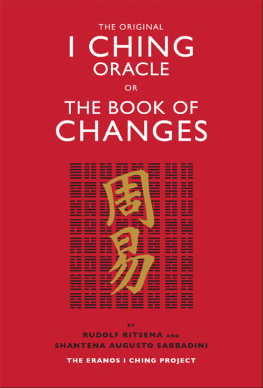
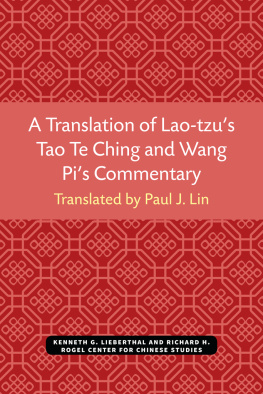
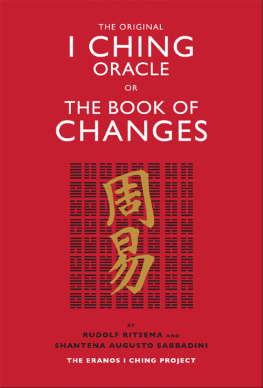
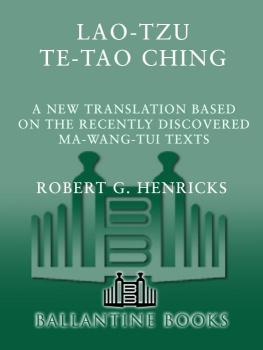
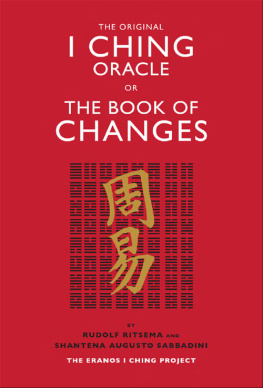
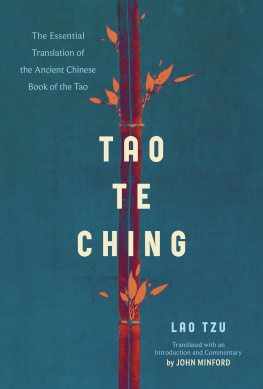
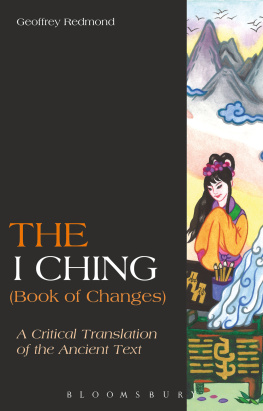
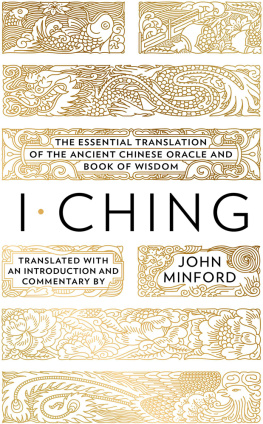
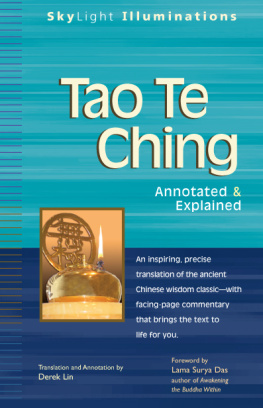

 THE DIVINE FEMININE
THE DIVINE FEMININE Rosemarie Andersons translation of the Tao Te Ching is perhaps the truest reflection of this ancient text, which refers to the Tao not in an impersonal way but in a feminine way. Andersons contemplative approach also adds to technical accuracythe lyricism, beauty, and mysticism of the original way the verses were performed. Her stunning achievement revitalizes this venerable wisdom and powerfully evokes its deeper meanings. JENNY WADE, PH.D., AUTHOR OF CHANGES OF MIND ANDTRANSCENDENT SEX Centering on the Tao as womb of the universe and Te as both virtue and potentiality, Rosemarie Anderson gives us a delightful ease of engagement with the ancient Chinese wise sayings. Her embodied approach is heart-opening; the crisp, direct lines are invitational; and the artful spacing of the layout adds to the beauty. I feel at home in this translation.
Rosemarie Andersons translation of the Tao Te Ching is perhaps the truest reflection of this ancient text, which refers to the Tao not in an impersonal way but in a feminine way. Andersons contemplative approach also adds to technical accuracythe lyricism, beauty, and mysticism of the original way the verses were performed. Her stunning achievement revitalizes this venerable wisdom and powerfully evokes its deeper meanings. JENNY WADE, PH.D., AUTHOR OF CHANGES OF MIND ANDTRANSCENDENT SEX Centering on the Tao as womb of the universe and Te as both virtue and potentiality, Rosemarie Anderson gives us a delightful ease of engagement with the ancient Chinese wise sayings. Her embodied approach is heart-opening; the crisp, direct lines are invitational; and the artful spacing of the layout adds to the beauty. I feel at home in this translation.